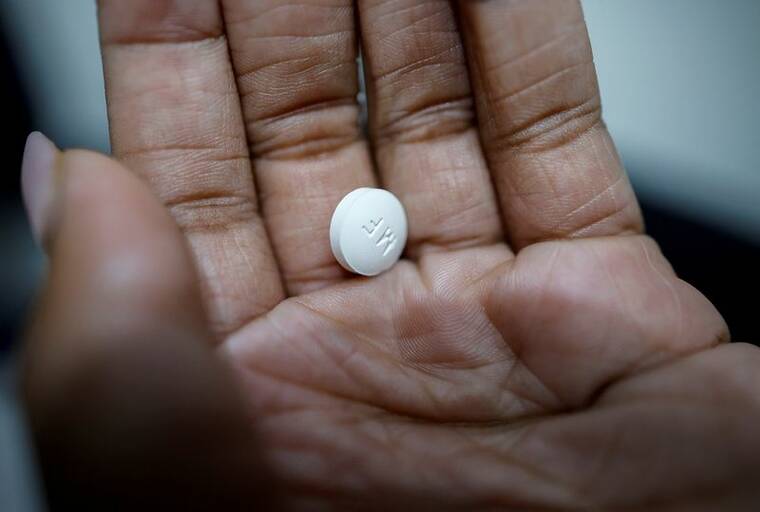The U.S. Supreme Court rejected a bid by anti-abortion groups and doctors to restrict access to the abortion pill, handing a victory today to President Joe Biden’s administration in its efforts to preserve broad access to the drug.
The justices, two years after ending the recognition of a constitutional right to abortion, ruled in a 9-0 decision authored by conservative Justice Brett Kavanaugh to overturn a lower court’s decision to roll back Food and Drug Administration steps in 2016 and 2021 that eased how the drug, called mifepristone, is prescribed and distributed.
The pill, given FDA regulatory approval in 2000, is used in more than 60% of U.S. abortions.
The court ruled that the plaintiffs behind the lawsuit challenging mifepristone lacked the necessary legal standing to pursue the case, which required that they show they have been harmed in a way that can be traced to the FDA.
The Supreme Court, which has a 6-3 conservative majority, in 2022 overturned its 1973 Roe v. Wade precedent that had legalized abortion nationwide, prompting 14 states to enact measures banning or sharply restricting the procedure.
Biden, a Democrat seeking a second term in office in the Nov. 5 U.S. election, took aim at Republican officials behind abortion bans and said today’s ruling “does not change the fact that the fight for reproductive freedom continues.”
“It does not change the fact that the Supreme Court overturned Roe v. Wade two years ago, and women lost a fundamental freedom. It does not change the fact that the right for a woman to get the treatment she needs is imperiled if not impossible in many states,” Biden said.
Kavanaugh wrote that even though the plaintiffs do not prescribe or use mifepristone, they want the FDA to make it harder for other doctors to prescribe it and women to receive it.
“Under Article III of the Constitution, a plaintiff’s desire to make a drug less available for others does not establish standing to sue,” Kavanaugh wrote.
That provision of the Constitution lays out the authority of the judicial branch of the U.S. government.
A ruling in favor of the plaintiffs could have threatened the regulatory authority of the FDA over drug safety.
The plaintiffs targeted FDA regulatory actions in 2016 and 2021, including allowing for medication abortions at up to 10 weeks of pregnancy instead of seven, and for mail delivery of the drug without a woman first seeing a clinician in-person. The suit initially had sought to reverse FDA approval of mifepristone, but that aspect was rebuffed by a lower court.
Biden, an outspoken advocate for abortion rights, and other Democrats have sought to make abortion rights a central theme against Republicans ahead of the election. Biden said that he will continue to call on Congress to put abortion rights protections into federal law.
Attacks on medication abortion, Biden said, “are part of Republican elected officials’ extreme and dangerous agenda to ban abortion nationwide.”
Biden noted that some state abortion bans include no exceptions for rape or incest.
“Women are being turned away from emergency rooms, or forced to go to court to plead for care that their doctor recommended or to travel hundreds of miles for care,” Biden said. “Doctors and nurses are being threatened with jail time, including life in prison, for providing the health care they have been trained to provide. And contraception and IVF (in vitro fertilization) are under attack.”
Abortion rights advocates and Democratic lawmakers expressed relief at the decision, but also concern that the Supreme Court had entertained the case in the first place.
“I have both relief and anger about this decision. Thank goodness the Supreme Court rejected this unwarranted attempt to curtail access to medication abortion, but the fact remains that this meritless case should never have gotten this far,” Center for Reproductive Rights President Nancy Northup said.
“Unfortunately, the attacks on abortion pills will not stop here. … In the end, this ruling is not a ‘win’ for abortion – it just maintains the status quo, which is a dire public health crisis in which 14 states have criminalized abortion,” Northup added.
In the 14 states that have banned abortion with extremely limited exceptions, medical providers cannot prescribe or dispense mifepristone under state law. Patients in those states may continue to take the legal risk of ordering the pills online from providers in states that do not restrict medication abortion, or they can travel out-of-state to legally obtain the pills.
The mifepristone dispute is not the only abortion case the Supreme Court is due to decide during this presidential election year. It also is expected to rule by the end of June on the legality of Idaho’s strict Republican-backed abortion ban that forbids terminating a pregnancy even if necessary to protect the health of a pregnant woman facing a medical emergency.
THE FIGHT OVER MIFEPRISTONE
Mifepristone is taken with another drug called misoprostol to perform medication abortions.
The FDA has said that after decades of use by millions of women in the United States and around the world, mifepristone has proven “extremely safe,” and that studies have demonstrated that “serious adverse events are exceedingly rare.”
The plaintiffs, led by the Alliance for Hippocratic Medicine, argued that the FDA acted contrary to its mandate to ensure medications are safe when it eased the restrictions on mifepristone. The plaintiffs accused the FDA of violating a federal law governing the actions of regulatory agencies.
The plaintiffs sued in Texas in 2022. U.S. District Judge Matthew Kacsmaryk broadly sided with them in a 2023 decision that would have effectively pulled the pill off the market.
After the administration appealed, the New Orleans-based 5th U.S. Circuit Court of Appeals did not go as far as Kacsmaryk but still ruled against the FDA’s decisions in 2016 and 2021 widening access to the pill. The 5th Circuit’s ruling was placed on hold pending the Supreme Court’s review.
In a May Reuters/Ipsos poll, 50% of respondents said they supported an in-person doctor visit requirement for abortion medication, while 33% said they opposed that rule. Seventeen percent said they were unsure.
Some 57% of respondents in the poll said abortion should be legal in all or most cases, up from 46% in Reuters/Ipsos polls conducted in 2014. Some 31% of respondents in the latest poll said it should be illegal in most or all cases, down from 43% in 2014 polls. About 10% of respondents consistently say they are not sure.
The Supreme Court heard arguments in the mifepristone case in March.
The plaintiffs had argued that they had proper legal standing to sue because their member doctors would be forced to violate their consciences due to “often be called upon to treat abortion-drug complications” in emergency settings as a result of what they called the FDA’s unlawful actions.
The Justice Department said that these claimed harms relied on an impermissibly speculative chain of events – that other doctors would provide mifepristone to women who then experience a rare emergency and end up in the medical care of these plaintiffs. Nor can the plaintiffs who chose to practice emergency medicine claim to be injured “whenever they are presented with patients in need of care,” it added.
Additional reporting by Gabriella Borter.
Read More: World News | Entertainment News | Celeb News
Star Ads





